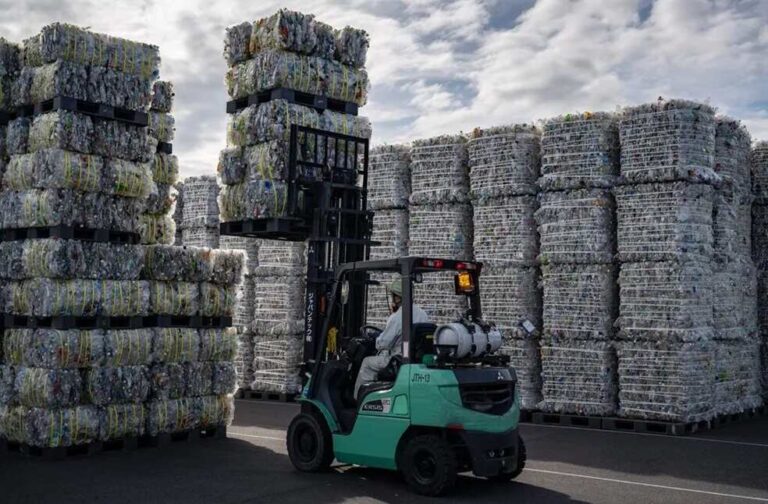Busan: Delegates from 175 countries gathered in Busan, South Korea, on Monday for the fifth round of talks aimed at securing a global treaty to curb plastic pollution.
South Korea is hosting the UN Intergovernmental Negotiating Committee (INC-5) meeting this week, which is expected to be the final round of negotiations.
The previous round of talks in Ottawa in April ended without a clear pathway forward on capping plastic production. As a result, discussions will now focus on chemicals of concern and other measures, with key petrochemical-producing nations such as Saudi Arabia and China strongly opposing efforts to limit plastic production. These nations are at odds with countries that are bearing the brunt of plastic pollution, who are pushing for stronger commitments.
“For too long, we have kicked the plastic bottle down the road” – @UN Secretary-General @AntonioGuterres calls for negotiators to deliver an ambitious, credible and just #PlasticsTreaty to end plastic pollution.#INC5 is a historic opportunity #ForPeopleForPlanet. pic.twitter.com/pWR9X2ljK4
— UN Environment Programme (@UNEP) November 24, 2024
The ongoing disagreements over the plastics treaty echo long-standing conflicts that have delayed UN efforts to address global climate change. This is evident from the recent COP29 climate summit, which concluded with an agreement that many poorer nations criticised as insufficient.
Luis Vayas Valdivieso, chair of the INC, warned at the opening of the meeting in Busan that without significant action, the amount of plastic entering the environment annually by 2040 is expected to nearly double from 2022 levels.
A significant shift occurred in August when the United States, traditionally aligned with major petrochemical interests, announced support for capping plastic production under the treaty, joining the EU, Kenya, Peru, and other nations in the High Ambition Coalition.

Despite the divisions, Inger Andersen, executive director of the UN Environment Programme, expressed optimism that a treaty would be finalised.
For small island nations like Fiji, the urgency of a global plastics treaty is critical. Fiji’s climate minister, Sivendra Michael, explained that despite not producing plastic, the country faces significant challenges due to plastic pollution, particularly in its oceans.
While many support the idea of an international treaty, the petrochemical industry has been vocal in its opposition to mandatory caps on plastic production, advocating instead for a focus on reducing plastic waste, such as through recycling initiatives.



